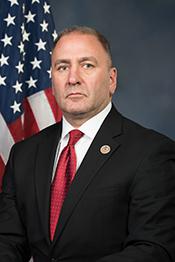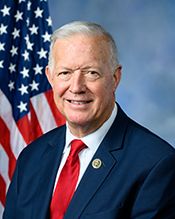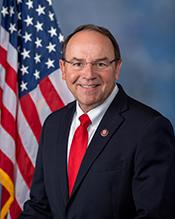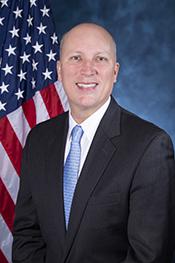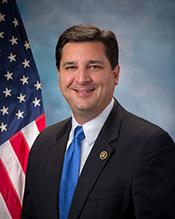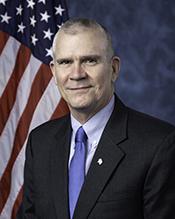0
0
0
Safeguarding American Workers’ Benefits Act
12/19/2024, 9:06 AM
Summary of Bill HR 7991
Bill 118 hr 7991, also known as the Safeguarding American Workers’ Benefits Act, aims to protect the benefits of American workers by addressing issues related to multiemployer pension plans. These plans are retirement plans that are collectively bargained by a union and multiple employers in industries such as construction, trucking, and mining.
The bill seeks to address the financial challenges facing these multiemployer pension plans, which have been exacerbated by factors such as economic downturns, industry consolidation, and an aging workforce. One of the key provisions of the bill is the establishment of a Pension Rehabilitation Administration within the Department of the Treasury. This administration would provide low-interest loans to financially troubled multiemployer pension plans in order to help them remain solvent and continue providing benefits to their participants.
Additionally, the bill includes measures to improve transparency and accountability in the management of multiemployer pension plans, as well as provisions to strengthen the Pension Benefit Guaranty Corporation (PBGC), which insures these plans in the event of insolvency. The PBGC would receive additional funding under the bill to ensure that it can fulfill its obligations to participants in distressed plans. Overall, the Safeguarding American Workers’ Benefits Act aims to protect the retirement security of American workers who participate in multiemployer pension plans. By providing financial assistance to struggling plans and strengthening oversight mechanisms, the bill seeks to ensure that workers can continue to rely on their hard-earned benefits in retirement.
The bill seeks to address the financial challenges facing these multiemployer pension plans, which have been exacerbated by factors such as economic downturns, industry consolidation, and an aging workforce. One of the key provisions of the bill is the establishment of a Pension Rehabilitation Administration within the Department of the Treasury. This administration would provide low-interest loans to financially troubled multiemployer pension plans in order to help them remain solvent and continue providing benefits to their participants.
Additionally, the bill includes measures to improve transparency and accountability in the management of multiemployer pension plans, as well as provisions to strengthen the Pension Benefit Guaranty Corporation (PBGC), which insures these plans in the event of insolvency. The PBGC would receive additional funding under the bill to ensure that it can fulfill its obligations to participants in distressed plans. Overall, the Safeguarding American Workers’ Benefits Act aims to protect the retirement security of American workers who participate in multiemployer pension plans. By providing financial assistance to struggling plans and strengthening oversight mechanisms, the bill seeks to ensure that workers can continue to rely on their hard-earned benefits in retirement.
Read the Full Bill
Current Status of Bill HR 7991
Bill HR 7991 is currently in the status of Bill Introduced since April 15, 2024. Bill HR 7991 was introduced during Congress 118 and was introduced to the House on April 15, 2024. Bill HR 7991's most recent activity was Referred to the Subcommittee on Social Security. as of December 17, 2024
Bipartisan Support of Bill HR 7991
Total Number of Sponsors
2Democrat Sponsors
0Republican Sponsors
2Unaffiliated Sponsors
0Total Number of Cosponsors
34Democrat Cosponsors
0Republican Cosponsors
34Unaffiliated Cosponsors
0Policy Area and Potential Impact of Bill HR 7991
Primary Policy Focus
TaxationAlternate Title(s) of Bill HR 7991
Safeguarding American Workers’ Benefits Act
Safeguarding American Workers’ Benefits Act
To amend the Internal Revenue Code of 1986 to modify the social security number requirements for claiming the child tax credit and earned income tax credit.
Comments
Sponsors and Cosponsors of HR 7991
Latest Bills
ESTUARIES Act
Bill HR 3962December 13, 2025
Federal Maritime Commission Reauthorization Act of 2025
Bill HR 4183December 13, 2025
National Defense Authorization Act for Fiscal Year 2026
Bill S 1071December 13, 2025
Enduring Justice for Victims of Trafficking Act
Bill S 2584December 13, 2025
Technical Corrections to the Northwestern New Mexico Rural Water Projects Act, Taos Pueblo Indian Water Rights Settlement Act, and Aamodt Litigation Settlement Act
Bill S 640December 13, 2025
Incentivizing New Ventures and Economic Strength Through Capital Formation Act of 2025
Bill HR 3383December 13, 2025
BOWOW Act of 2025
Bill HR 4638December 13, 2025
Northern Mariana Islands Small Business Access Act
Bill HR 3496December 13, 2025
Wildfire Risk Evaluation Act
Bill HR 3924December 13, 2025
Energy Choice Act
Bill HR 3699December 13, 2025
A bill to amend the Internal Revenue Code of 1986 to require taxpayers claiming the child and earned income tax credits, and their qualifying children, to have a valid social security number for employment purposes.
Bill S 3798March 12, 2024
